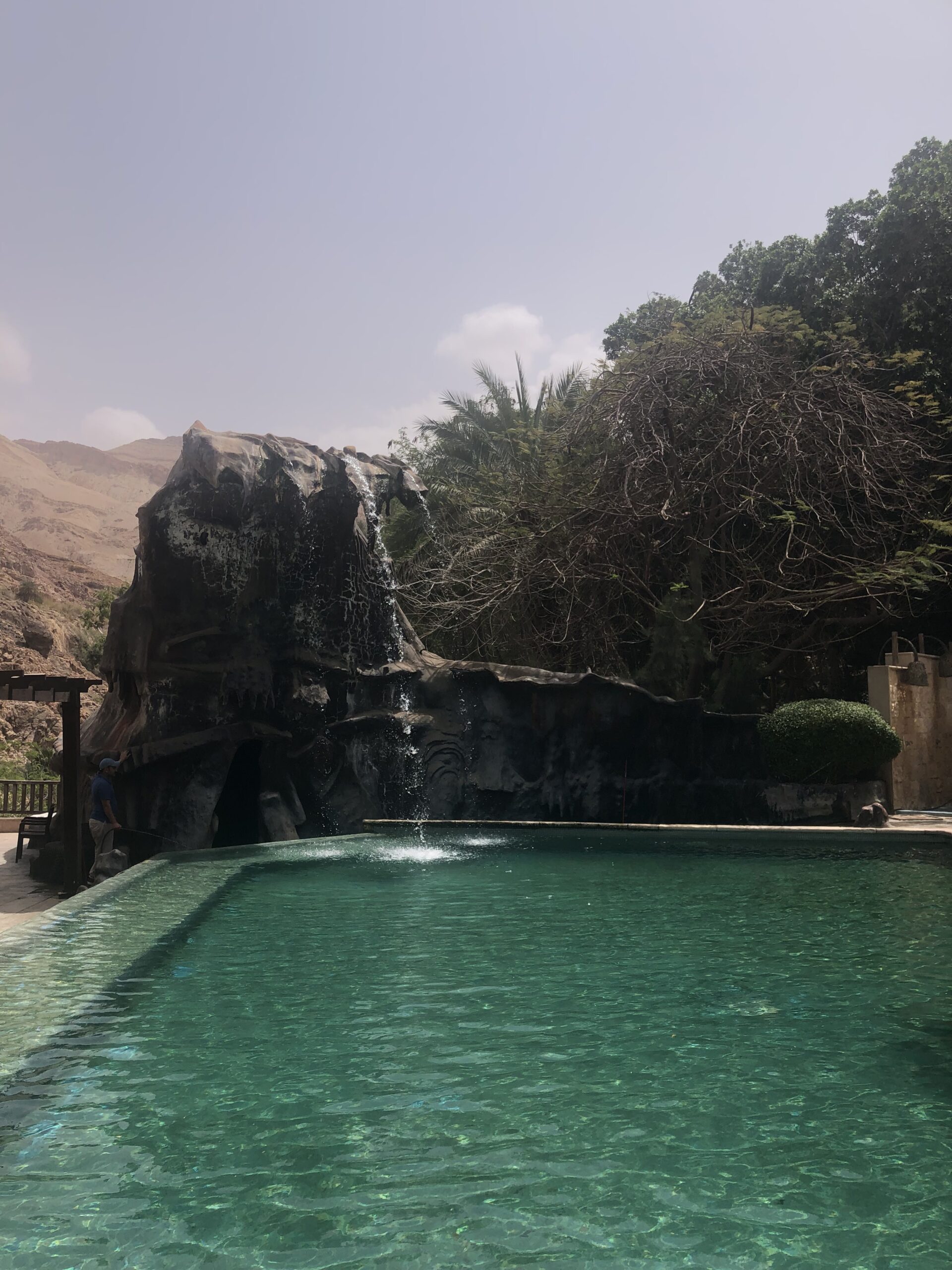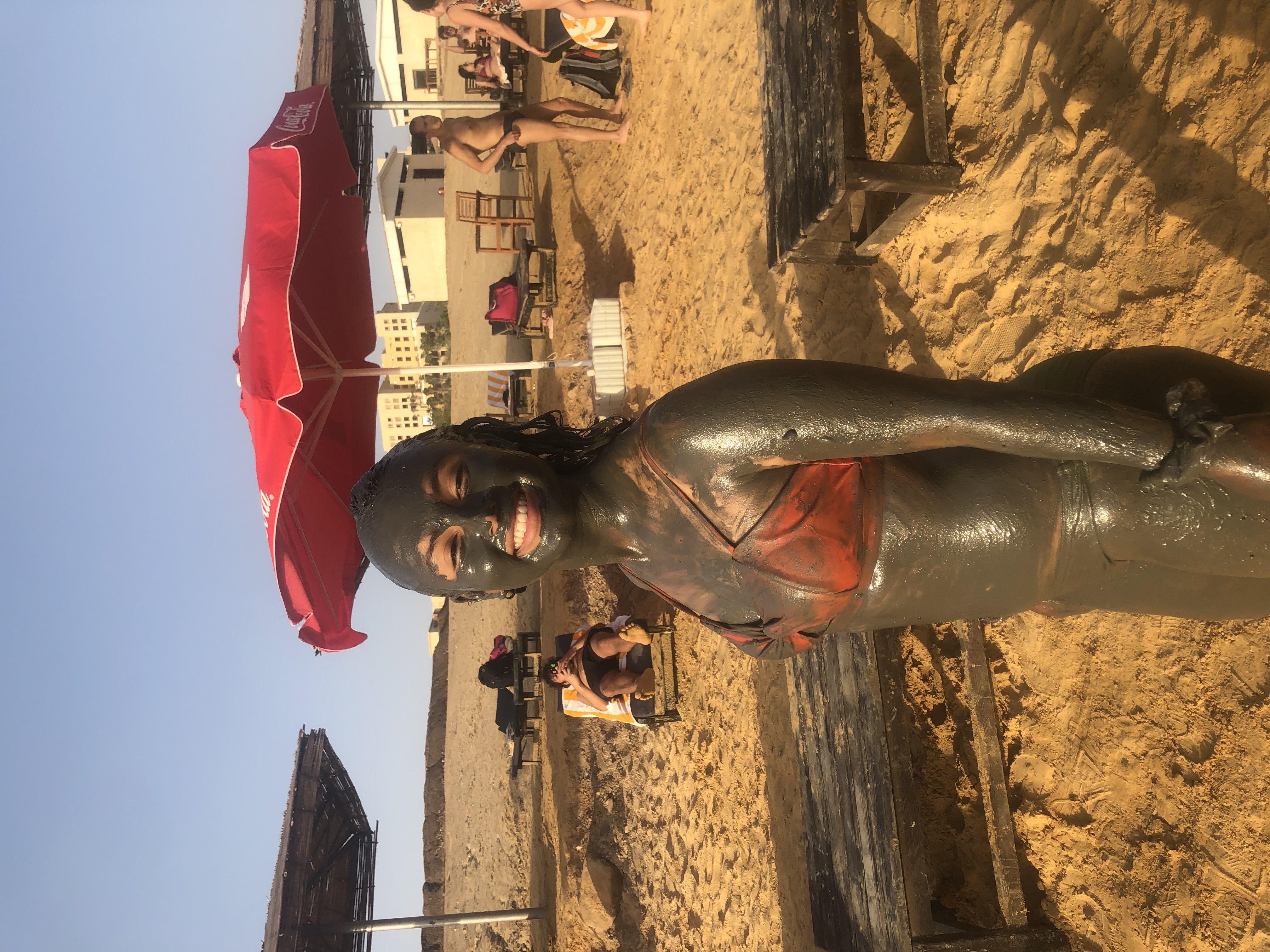
Natural and Privatized Sites of Healing
WEDNESDAY, APRIL 20, 2022
Sometimes, there are patterns or commonalities in the way people think depending on the culture that people practice and the identities they share that prompt similar experiences and subsequent takeaways. I used to think that one could more often than not find almost homogenous ideologies shared by people in the same city or larger territory. My conversations with Jordanians, however, have increasingly convinced me that there is much more heterogeneity than meets the eye for me as an outsider who tends to generalize subcultures and their people based on information I previously internalized or assumed about their norms and customs. Topics that I thought were least likely to generate widely differing opinions brought low levels of consensus. I have been talking about the natural environment with Careem drivers, my homestay family, new friends, school staff, and experts in the field who work for NGOs. As far as environmental consciousness goes, some people believe Jordanians are environmentally responsible due to their own desire to care for their surroundings while others believe they solely do it because they have to in order to survive in a resource-scarce country. People may believe that the country is struggling with natural resources and others may believe that the country actually has an abundance of natural resources that the government is actively choosing not to extract from the Earth. Some individuals seek out knowledge on national environmental issues to inform themselves and their loved ones on the considerations that they must make when using the natural and built environments, which make up the physical environment overall.
We went to the Ma’in Hot Springs, the baptismal site of Jesus, and the Dead Sea last week. Each site has the potential to be a site of healing for someone seeking spiritual, physical, or mental support. To get from Amman to the site locations and to take advantage of their offerings, one must drive a few hours and pay fees associated with entries and services. The hot springs and a hotel near the Dead Sea both assist people who are participating in medical tourism. Likewise, there is emphasis placed on catering to tourists at Jesus’ baptismal site, which prompts higher exclusivity for local Jordanians. The privatization of sites has its benefits and drawbacks since it can help maintain the place’s integrity and simultaneously prevent locals from enjoying what they should have access to by way of high fees, securitization, and inaccessibility via public or private transportation due to cost and/or distance. The privatization of natural resources, or at least the inequitable distribution of them, prevents the increase of quality of life for larger groups of people with lower socioeconomic statuses. We visited Caritas Jordan, a refugee support NGO, where I learned of the resource-related issues that refugees face when fleeing their home country and trying to establish a new, healthy life in Jordan. The initial lack of personal hygiene products and water that some refugees experience increases their likelihood of getting sick. Physical illnesses and ailments can induce mental unwellness or healthy anxiety. To improve holistic community health, usable natural resources should be readily available for everyone who needs them instead of being concentrated in the more wealthy sectors of society.

